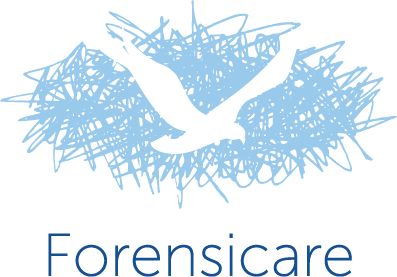
Forensicare’s Forensic Mental Health Professional Development Program (FMHPDP), delivered in collaboration with the Centre for Forensic Behavioural Science, provides a professional development program for individuals, teams and organisations looking to expand their knowledge and understanding of forensic behaviour and mental health issues. Workshops are provided throughout the year and are also available on request.
Improving Knowledge, Improving Practice
Our training program aims to promote knowledge and skills utilising evidence-based expertise developed on a foundation of advancing consumer-informed best practice.
As a specialist service, trainers from Forensicare and the Centre for Forensic Behavioural Science include some of the most highly regarded and experienced clinicians and researchers in the field of forensic mental health. Our current program will be of interest to a wide cross section of individuals and organisations including those who work in health, community, and criminal justice sectors.
Workshop program
Wednesday 31 January and Thursday 1 February 2024 9am – 5pm (UTC+11)
Venue: This is an online event. Access details will be provided by the event organiser
Cost: $500 (+GST)
Book your place
Understanding, assessing, and treating adult firesetting
This workshop will provide attendees with the latest knowledge on adult deliberate firesetting including common characteristics of and theoretical explanations for firesetting, current evidence-based approaches for assessment and treatment of firesetting including current best practice for risk assessment. The workshop will also provide attendees with the practical knowledge to be able to successfully deliver either the FIPP (for prisons) or the FIP-MO (for forensic mental health settings) specialist firesetting treatment programmes.
Please note: To be able to deliver the FIPP or FIP-MO, involvement of a registered practitioner (e.g., psychologist) is required. The fee includes a copy of either the FIP-MO or FIPP manual along with all training materials. Delegates select their manual preference in advance and these will then be sent to individuals after the event.
Please note: The workshop runs over two sessions: 6.30–9.30pm AEST on 31 Jan and 1 Feb 2024. You must attend both sessions.
Thursday 22 February – Friday 23 February 2024 9am – 5pm
Venue: Centre for Forensic Behavioural Science, Level 1, 582 Heidelberg Road, Alphington
Cost: $750 (+GST)
Book your place
The Good Lives Model of Rehabilitation
Presenter: Professor Tony Ward PhD, DipClinPsyc, FRSNZ
During this two-day in-person workshop, participants will be introduced to the underlying theory and practice guidelines of the Good Lives Model of offender rehabilitation (GLM). The limitations of formulating cases primarily in terms of dynamic risk factors will be discussed along with the advantages of adopting a strengths-oriented approach. The fundamentals of GLM assessment and case formulation will be presented.
Participants will then be guided through the process of conducting a GLM-guided assessment by working through a number of clinical examples. In the second day, the primary focus is on using the GLM to construct good lives intervention plans, drawing from cases vignettes and cases that participants have brought along from their own practice.
Tony Ward is currently professor in clinical psychology at Victoria University of Wellington, New Zealand. He has taught clinical and forensic psychology at several universities and was a past director of the Kia Marama Treatment Unit for men who have sexually abused children. Professor Ward has authored more than 470 academic publications and is on the editorial boards of several leading forensic psychology journals. His current research projects include: (a) explanation and inquiry in clinical research and practice; (b) normative issues in forensic psychology; and (c) change processes in the psychopathology and forensic/correctional domains. He has run workshops and given talks on the GLM all over the world including Ireland, Belgium, England, Japan, Canada, Germany, Hong Kong, Australia, Wales, Singapore, Scotland, and the USA.
Wednesday 13 March 2024 9am – 5pm
Venue: Centre for Forensic Behavioural Science, Level 1, 582 Heidelberg Road, Alphington
Cost: $375 (+GST)
Book your place
Formulation of complex and potentially harmful behaviour
Presenter: Professor Troy McEwan
One of the most challenging aspects of working in forensic contexts is responding to behaviours that have the potential to cause significant harm (e.g., violence, threats, harmful sexual behaviour, stalking). To work effectively with such clients, professionals need to be able to formulate the client’s behaviour; i.e. understand and explain the behaviour and harm potential, and use knowledge this to guide risk management and intervention. Formulation of problem behaviour is particularly important in cases where there are multiple interacting comorbidities and co-occurring biopsychosocial challenges; in client groups with whom it can be difficult to establish a rapport; and in cases where there is a high risk of inconsistent management across agencies and over time.
The aim of this workshop is to teach a method of formulating problematic and potentially harmful client behaviour that goes beyond the application of structured risk assessment guides. The workshop will involve both didactic learning and case study-based practice. Participants will finish the workshop with a framework for formulation that they can use to understand and communicate about concerning client behaviour, and to shape risk reduction and intervention efforts. This workshop is intended for health and human services professionals who are keen build their ability to work with clients who present with problematic and potentially harmful behaviour towards others.
Participants in this workshop may be invited to participate in research evaluating the effects of formulation training.
Troy McEwan Professor Troy McEwan is a Professor at the Centre for Forensic Behavioural Science, and a Senior Psychologist with Forensicare’s Problem Behaviour Program.
She also convenes the Doctorate of Psychology(Clinical and Forensic) training program and the Graduate Diploma of Forensic Psychology at Swinburne University of Technology.
Friday 12 April 2024 9am – 5pm
Venue: Centre for Forensic Behavioural Science, Level 1, 582 Heidelberg Road, Alphington
Cost: $375 (+GST)
Book your place
Working with people with high levels of psychopathy
Presenter: Professor Rajan Darjee
People with psychopathic personality traits are amongst the most challenging and concerning cases for professionals to work with. This one day training will give participants an overview of the latest research and best practice recommendations for working with people with significant psychopathic traits. It will cover the nature and definition of psychopathy; the aetiology and development of psychopathy; comorbidity, differential diagnosis and overlaps with other conditions; the association with offending and violence; and its life course. But the main focus will be on relevant practice skills and knowledge such as interview skills, assessment issues, treatment approaches, and risk assessment and management.
Videos and case studies will be used to enhance the practical application of the training.
This is not training in using a particular instrument to assess psychopathy and no such prior training is required to attend. The day will be suitable for a wide range of professionals who work with or want to develop their skills in relation to people with psychopathic traits, including those who work in forensic or general mental health services, correctional services, law enforcement, child and family protective services, legal settings or other support/intervention services particularly for people who offend.
Dr Rajan Darjee is an Adjunct Associate Professor and Consultant Forensic Psychiatrist. He has extensive experience over the last 20 years of preparing expert reports and giving evidence regarding mental state defences and at sentencing in the UK and in Australia. This has included several high-profile murder cases. He has treated individuals who have been found not criminally responsible due to mental disorder/impairment, of diminished responsibility, and where sentences have been mitigated. He has also written several publications on psychiatric defences and legal provisions for mentally disordered people in the criminal justice and forensic mental health systems, and on the characteristics and outcomes of forensic mental health patients.
Monday 22 April 2024 12pm – 2pm (AEST)
Venue: This is an online event. Access details will be provided by the event organiser
Cost: $50 (+GST)
Book your place
Racial and ethnic disparities in risk assessment: An introduction
Presenter: Dr Benjamin Spivak
In recent years there has been an explosion of interest in the performance of risk assessment instruments across racial and ethnic groups. Internationally and in Australia, forensic services are increasingly recognising the need to assess the extent to which their use of risk assessments are contributing to, or reducing disparities along racial and ethnic lines. This seminar aims to address this need by covering the basics of assessing risk assessment performance, approaches to measuring disparities in risk assessment instruments and the state of the art in terms of adjusting risk assessment performance to reduce disparities and/or create more equitable performance. Along the way we will explicate notions of disparity, fairness, and equity and discuss what, if any, issues exist in attempting to reconcile these concepts with risk assessment. The seminar is entirely self-contained and will not require any prior understanding of statistics or risk assessment.
Dr Benjamin Spivak is a Senior Lecturer in the Centre for Forensic Behavioural Science, Swinburne University of Technology. He currently leads the Culture, Psychology and Law research stream and co-leads the Psychology and Legal Processes research stream. Dr Spivak has published over 40 peer reviewed articles and has co-developed risk assessment tools for Victoria Police for use with family violence. Dr Spivak’s work focuses on applying novel methodology to evaluate and improve criminal justice policy. He has conducted research collaborations at all stages of
the criminal justice system including corrections, courts and police.
Tuesday 21 May 2024 9am – 5pm
Venue: Centre for Forensic Behavioural Science, Level 1, 582 Heidelberg Road, Alphington
Cost: $375 (+GST)
Book your place
Working with people who have a history of violence
Presenter: Professor Michael Daffern
This workshop aims to introduce methods for understanding violent behaviour and identifying the personal characteristics of people who act violently and the situations that might trigger and maintain violence. Approaches to formulating violent behaviour and determining treatment needs will be discussed. The workshop will then move to a discussion of intervention approaches, with an emphasis on psychological treatment and the practices and setting conditions that seem to facilitate change. The challenges and benefits in providing treatment and establishing and maintaining a therapeutic alliance will be considered.
Professor of Clinical Forensic Psychology and Director of the Centre for Forensic Behavioural Science, Michael is a Consultant Principal Psychologist with the Victorian Institute of Forensic Mental Health (Forensicare). Michael began his career as a psychologist in the NSW Department of Corrective Services in 1992. He has worked in general and forensic mental health services since this time. He divides his time between research, teaching and clinical practice. His research focuses on understanding and intervening with people who have a history of violence or who are considered at risk of violence.
Friday 24 May 2024 9am – 5pm
Venue: Centre for Forensic Behavioural Science, Level 1, 582 Heidelberg Road, Alphington
Cost: $375 (+GST)
Book your place
Instilling trauma-informed care when working with justice-involved individuals
Presenters: Dr Bonnie Albrecht
This training provides an overview of trauma-informed care and considers opportunities for instilling trauma- informed care and practice within services working with justice-involved clients. At the completion of this training, participants should have an understanding of the ethos, principles, and research underlying trauma-informed care, and practical approaches to enlivening trauma-informed care in their workplace. As part of the workshop, participants will be invited to undertake personal reflection about their approaches towards clients, colleagues, and self-care.
This full-day training is suitable for clinicians working with justice-involved clients, whether in community, inpatient, or custodial settings. This training is also suitable for those who manage or supervise clinicians in such client-facing roles.
Dr Bonnie Albrecht is a Senior Psychologist with the Problem Behaviour Program, Forensicare, and a Clinical Associate with Swinburne’s Centre for Forensic Behavioural Science. Bonnie has been actively involved in trauma-informed care initiatives at Thomas Embling Hospital and the Problem Behaviour Program.
Friday 21 June 2024 9am – 5pm
Venue: Centre for Forensic Behavioural Science, Level 1, 582 Heidelberg Road, Alphington
Cost: $375 (+GST)
Book your place
Assessing and managing people who commit online child abuse material offences including administering the Child Pornography Offence Risk Tool (CPORT)
Presenters: Dr Rajan Darjee
Dr Rajan Darjee is an Adjunct Associate Professor and Consultant Forensic Psychiatrist. He has extensive experience over the last 20 years of preparing expert reports and giving evidence regarding mental state defences and at sentencing in the UK and in Australia. This has included several high-profile murder cases. He has treated individuals who have been found not criminally responsible due to mental disorder/impairment, of diminished responsibility, and where sentences have been mitigated. He has also written several publications on psychiatric defences and legal provisions for mentally disordered people in the criminal justice and forensic mental health systems, and on the characteristics and outcomes of forensic mental health patients.
Wednesday 24 July 2024 9am – 1pm
Venue: Centre for Forensic Behavioural Science, Level 1, 582 Heidelberg Road, Alphington
Cost: $175 (+GST)
Book your place
Understanding and responding to anger and difficult behaviour
Presenters: David Willshire
This half-day workshop is suitable for anyone who comes into contact with angry and aggressive people who can be challenging to deal with. It covers anger and aggression, what is difficult behaviour and ways of managing it, as well as ways of managing yourself in the face of anger and difficult behaviour.
It is appropriate for reception staff, customer service staff, council staff, health workers, support workers and mental health clinicians.
David Willshire is a Principal Consultant Psychologist at Forensicare. He has worked as a clinical and forensic psychologist in a variety of settings for more than 30 years.
Friday 16 August 2024 9am – 5pm
Venue: Centre for Forensic Behavioural Science, Level 1, 582 Heidelberg Road, Alphington and Online
Cost: $375 (+GST)
Book your place
Assessing mental state at the time of offence for legal reports
Presenter: Dr Rajan Darjee
The law recognises that a person’s mental state when they commit an offence may render them not responsible for the offence or may be a mitigating factor at sentencing. Experts are asked to provide opinions in such cases in the form of reports and oral evidence.
This day will give participants a detailed overview of:
- The relevant legal provisions in Australia, particularly: the defence of mental impairment, automatism, diminished responsibility and sentencing considerations
- The practical “craft” of how these laws are applied in practice
- The role of expert psychologists and psychiatrists when undertaking assessments
- The clinical and forensic approach to assessing the nexus between the mental health condition(s) and the offence(s)
- How to set out an expert option on this in reports or when giving evidence
- Research on the characteristics and outcomes of cases where lack of responsibility or mitigation due to mental disorder are relevant
The teaching will include:
- Didactic lecturing using practical examples and references to relevant research, case law and guidance
- Opportunities to discuss the topics and ask questions
- Case studies which participants will work through in small groups
The training is particularly aimed at psychiatrists, psychologists, and lawyers who work with criminal cases, but will also be suitable for other professionals who work with people with mental health problems in the criminal justice or forensic mental health systems.
Dr Rajan Darjee is an Adjunct Associate Professor and Consultant Forensic Psychiatrist. He has extensive experience over the last 20 years of preparing expert reports and giving evidence regarding mental state defences and at sentencing in the UK and in Australia. This has included several high-profile murder cases. He has treated individuals who have been found not criminally responsible due to mental disorder/impairment, of diminished responsibility, and where sentences have been mitigated. He has also written several publications on psychiatric defences and legal provisions for mentally disordered people in the criminal justice and forensic mental health systems, and on the characteristics and outcomes of forensic mental health patients.
Wednesday 11 September 2024 9am – 5pm
Venue: Centre for Forensic Behavioural Science, Level 1, 582 Heidelberg Road, Alphington
Cost: $375 (+GST)
Book your place
Understanding and assessing young people at risk of violence
Presenters: Dr Adam Deacon and Susan Hancox
This full day workshop will provide participants with an understanding of the risk factors for violence in young people and discuss the implications for assessment and management. Case examples will be utilised throughout including a case review by Dr Deacon. He will focus on the criminogenic needs and idiographic factors leading to his formulation and risk summary. Participants will have the opportunity to work through a case, applying a risk assessment framework. This will be followed by a review of the assessment task, highlighting the process of identifying risk and protective factors and considering how they can be incorporated into a risk management plan.
The workshop is primarily targeted at health and mental health clinicians however it has also been useful for professionals working with youth in a range of community settings.
Dr Adam Deacon is a Child and Youth Forensic Psychiatrist leading the Youth Forensic Specialist Service at Alfred Health.
Susan Hancox is a clinical psychologist and mental health social worker and Coordinator of the Youth Justice Mental Health Initiative at Forensicare.
Monday 23 September 2024 9am – 5pm
Venue: Centre for Forensic Behavioural Science, Level 1, 582 Heidelberg Road, Alphington
Cost: $375 (+GST)
Book your place
Assessment and treatment of offenders with cognitive disabilities
Presenter: Dr Matt Frize
This training provides a summary of the current evidence base for risk assessment and treatment of offending behaviours of people with cognitive disabilities. By the completion of this training session, participants will have knowledge regarding the impact of cognitive disability on offending. Participants will also have knowledge regarding the validity and reliability of risk assessment measures for this population. Both cognitive behavioural and behavioural interventions will be explored, with a particular focus on the application of positive behaviour support and applied behaviour analysis. This full day session is appropriate for clinicians who work with people with a cognitive disability in the community or custodial settings.
Dr Matt Frize is the Director of Forensic Disability Services for the Department of Families, Fairness and Housing (Victoria).
Tuesday 1 October 2024 9am – 5pm
Venue: Centre for Forensic Behavioural Science, Level 1, 582 Heidelberg Road, Alphington
Cost: $375 (+GST)
Book your place
Understanding aggression & enhancing clinical reasoning
Presenter: Tess Maguire
Understanding, preventing and managing aggression remains an important task for clinicians working in inpatient settings. This workshop will cover a range of models and frameworks to assist with understanding and assessing inpatient aggression as well as interventions to prevent aggression. This workshop will also cover clinical reasoning which can assist in steering clinical practice, encouraging collaboration with consumers and their support structures, as well as driving sound clinical judgement, reasoning, and reflection on practice.
Tess Maguire is a Senior Lecturer in Forensic Mental Health Nursing. She has a joint appointment with the CFBS, and Forensicare. She has extensive experience in development and delivery of professional development including management of aggression. Her research focuses on forensic mental health nursing practice, including risk assessment and nursing interventions (eDASA + APP) to reduce aggression. She was the recipient of the International Association of Forensic Mental Health Services, Christopher Webster Early Career Award in 2020 and the eDASA + APP received a National Award from the Australian Council on Healthcare Standard for clinical excellence and patient safety. Last year she received the Chris Abderhalden Award for Young Researchers in the Field of Aggression in Healthcare at the 12th European Congress on Violence in Clinical Psychiatry.
Tuesday 15 October 2024 9am – 1pm
Venue: Centre for Forensic Behavioural Science, Level 1, 582 Heidelberg Road, Alphington
Cost: $175 (+GST)
Book your place
Occupational therapy approaches in forensic mental health: An introductory workshop
Presenters: Charlotte Mills, Gabby Pitt, Dani Ashley
Criminogenic needs are dynamic factors that contribute to a person engaging in criminal behaviour. They can include personal factors (substance use, unaddressed trauma, antisocial cognitions); environmental factors (unstable housing, interpersonal and family relationships, antisocial peers) and occupational factors (unemployment, recreational and leisure activities). This workshop presents evidence-based approaches used by forensic mental health (FMH) occupational therapists who work with clients involved in the criminal justice system. With the use of an occupational therapy practice process to guide the session, participants will learn about the OT role in addressing criminogenic needs, ways of exploring occupations that may cause harm, understanding risk from an occupational therapy perspective, and addressing occupational deprivation and the impacts of institutionalistion. This workshop will be interactive and case studies will be used to support participant learning. This training is suitable for occupational therapists working with people who have had contact with the criminal justice system or are at risk of offending.
This workshop will be facilitated by Forensicare Occupational Therapy Clinical Educators, Charlotte Mills, Gabby Pitt and Dani Ashley. All three facilitators have a significant amount of clinical experience and knowledge, having worked within forensic mental health secure settings for 10+ years.
Friday 1 November 2024 9am – 5pm
Venue: Centre for Forensic Behavioural Science, Level 1, 582 Heidelberg Road, Alphington
Cost: $375 (+GST)
Book your place
Understanding and assessing adult firesetting
Presenters: Dr Nichola Tyler and Dr Lauren Ducat
This workshop will provide mental health and correctional professionals with the latest knowledge on deliberate firesetting. Attendees will gain knowledge of the common characteristics of and theoretical explanations for adult firesetting. Attendees will also learn about current evidence-based approaches for assessment of adult deliberate firesetting including psychometric tools that can assist in identification of treatment needs and current best practice in risk assessment.
The workshop will be delivered through a combination of didactic and simulation/experiential teaching to assist delegates recall and synthesise information before applying this across different contexts. Interaction, discussion, and questions are encouraged throughout to ensure understanding, clarification, and application of learning to key clinical issues. The experiential tasks (e.g., case studies, practical exercises) and discussions that form part of the workshop aim to enhance the learning and internalization of material for attendees.
At the end of the workshop attendees will be able to:
- Describe the characteristics of adults who set deliberate fires.
- Critique existing theoretical explanations for adult deliberate firesetting.
- Describe the latest comprehensive theory of adult firesetting (the Multi-Trajectory Theory of deliberate firesetting) and apply this to case examples.
- Summarize the treatment needs and risk factors of adults who engage in deliberate firesetting.
- Identify appropriate psychometric tools for assessing fire-specific risk factors.
- Explain different approaches to risk assessment for deliberate firesetting and their strengths and weaknesses.
- Link risk assessment and formulation to treatment needs.
Dr Nichola Tyler (Senior Lecturer in Forensic Psychology, Centre for Forensic Behavioural Science, Swinburne University of Technology).
Dr Lauren Ducat (Manager Problem Behaviour Program and Chief Psychologist CFMHS, Forensicare; Adjunct Research Fellow, Centre for Forensic Behavioural Science, Swinburne University of Technology).
Wednesday 13 November 2024 12 – 2pm
Venue: Online
Cost: $50 (+GST)
Book your place
The current state of telepractice in forensic mental health
Presenter: Dr Ashley Batastini
The use of telecommunication technologies for psychological services has increased substantially in recent years, particularly following the novel coronavirus pandemic. However, forensic mental health settings present unique challenges. In this seminar, we’ll discuss the potential benefits of using telepractice with forensic populations, current research and remaining gaps in knowledge regarding forensic telepractice, and recommendations for using telepractice for forensic service delivery. The primary aims of this presentation are to (1) help attendees anticipate challenges when coordinating and communicating remotely with courts, legal system participants, and institutional administrators and (2) more effectively adapt forensic mental health practices to virtual environments.
Ashley Batastini is an Associate Professor of Forensic Psychology at the Centre for Forensic Behavioural Science. She earned her Ph.D. in Counselling Psychology at Texas Tech University and has held academic positions at the University of Southern Mississippi and the University of Memphis in the U.S. Dr. Batastini’s research primarily focuses on innovative approaches for targeting and reducing future criminal conduct post-adjudication, with heightened attention to mental health and systemic responsivity factors for more difficult-to-reach populations and those in lower resourced areas. Her work has also tapped into other points of contact with the criminal legal system, including pre-trial forensic mental health evaluations and community re-entry.
Wednesday 27 November 2024 9am – 5pm
Venue: Centre for Forensic Behavioural Science, Level 1, 582 Heidelberg Road, Alphington
Cost: $375 (+GST)
Book your place
Formulation of complex and potentially harmful behaviour
Presenter: Professor Troy McEwan
One of the most challenging aspects of working in forensic contexts is responding to behaviours that have the potential to cause significant harm (e.g., violence, threats, harmful sexual behaviour, stalking). To work effectively with such clients, professionals need to be able to formulate the client’s behaviour; i.e. understand and explain the behaviour and harm potential, and use knowledge this to guide risk management and intervention. Formulation of problem behaviour is particularly important in cases where there are multiple interacting comorbidities and co-occurring biopsychosocial challenges; in client groups with whom it can be difficult to establish a rapport; and in cases where there is a high risk of inconsistent management across agencies and over time.
The aim of this workshop is to teach a method of formulating problematic and potentially harmful client behaviour that goes beyond the application of structured risk assessment guides. The workshop will involve both didactic learning and case study-based practice. Participants will finish the workshop with a framework for formulation that they can use to understand and communicate about concerning client behaviour, and to shape risk reduction and intervention efforts. This workshop is intended for health and human services professionals who are keen build their ability to work with clients who present with problematic and potentially harmful behaviour towards others.
Participants in this workshop may be invited to participate in research evaluating the effects of formulation training.
Troy McEwan is a Professor at the Centre for Forensic Behavioural Science, and a Senior Psychologist with Forensicare’s Problem Behaviour Program. She also convenes the Doctorate of Psychology (Clinical and Forensic) training program and the Graduate Diploma of Forensic Psychology at Swinburne University of Technology.
Friday 6 December 2024 9am – 5pm
Venue: Centre for Forensic Behavioural Science, Level 1, 582 Heidelberg Road, Alphington
Cost: $375 (+GST)
Book your place
Tackling offending in individuals with autism and other common neurodevelopmental disorders
Presenter: Dr David Thomas
People with neurodevelopmental disorders have long been considered vulnerable to engaging in serious offending behaviours including physical assaults, criminal damage, stalking, rapes, homicides and fire setting. While there are some published reports of increased prevalence of these disorders (esp. autism and ADHD) in offender populations in both correctional and secure health facilities, the overwhelming majority of individuals living with autism never have any contact with the criminal justice system. Those that do engage in serious violent crime typically present with a range complex needs that cannot be effectively or adequately managed in mainstream health and correctional settings. It is well recognised that features of autism often create barriers to effective therapeutic engagement and the response rates to treatment programs are lower in this group than those in the general offender population.
In this full day session I intend to:
- Provide a brief overview of common neurodevelopmental disorders.
- Explore & take a closer look at common pathways that lead to criminal offending.
- Review the current evidence base on the links, if any, between these conditions and serious offending behaviours.
- Explore issues around the motivation for offending, links with psychopathy, schizophrenia spectrum disorders and other comorbid conditions.
- Explore measures that can be implemented to improve rehabilitative outcomes in forensic settings.
Attendees would be able to identify common neurodevelopmental disorders that are
commonly encountered in forensic (community, prison and health) settings, identify common risk factors for offending and have a better understanding and appreciation of interventions to reduce recidivism and improve treatment/management outcomes.
This full-day training is suitable for clinicians working with individuals with intellectual disabilities and other neurodevelopmental disorders in contact with the criminal justice system.
David Thomas is a psychiatrist with the Victorian Institute for Forensic Mental Health (Forensicare) and Hon Research Fellow with the Centre for Forensic Behavioural Science, Swinburne University of Technology. He trained in London and has worked as a Consultant in Neurodevelopmental/ID Psychiatry since 2001. David is currently with Forensicare’s Problem Behaviour Program, having worked previously with the Community Treatment & Transition (CTT) program and the Moroka Program at Ravenhall Correctional Centre.
Cancellation policy
The FMHPDP team reserves the right to cancel workshops, in which case, all fees will be refunded. If participants withdraw up to 72 hours prior to the commencement of the workshop, 50% of the fee will be refunded.
There will be no refunds for cancellations within 72 hours of the workshop.
Bookings are non-transferable to future workshops, but bookings for a particular workshop can be transferred to another person.
Customised training
We also provide customised training and related services based on your needs and specific requests. This includes a range of organisational services including individual and team supervision, facilitation of team processes, and organisational advisory services drawing on specialist clinical, management and service delivery experience.
More information
For more information, please email the Forensic Mental Health Professional Development Program team: FMHPDP@forensicare.vic.gov.au.




